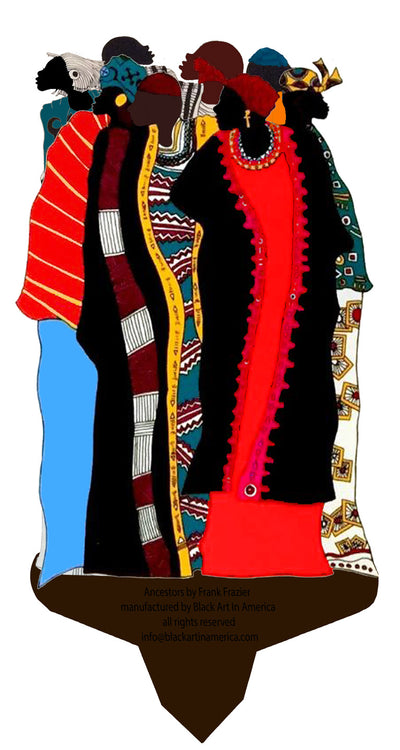March on Washington Film Festival
March on Washington Film Festival
by D. Amari Jackson
-Isisara Bey, Artistic Director, March on Washington Film Festival
from On Vision, TEDxBarnardCollegeWomen/TEDx Talks, Jan 2013
The March on Washington Film Festival (MOWFF), as its name confirms, was born of struggle. Sixty one years ago, on August 28, 1963, the historic March on Washington for Jobs and Freedom was held at the Lincoln Memorial as more than a quarter million people descended upon the Capitol to demand equal rights and access for all American citizens. The March on Washington Film Festival—a hybrid festival taking place October 6-13, 2024 with both in-person events in Washington, D.C. and film screenings on the online platform Eventive—pulls from this iconic event to encourage contemporary activism while increasing awareness of the untold events and unsung heroes of the Civil Rights Era. The festival is the longest running festival dedicated to civil rights in the country.
 “People are empowered when they have the ability to tell their own truthful stories,” says Joanne Irby, executive director of the festival. “When young people grow up in school and learn about the civil rights movement, they learn about Dr. King and Rose Parks. But there was so much more to the movement,” clarifies Irby, “so much more strategy and so many more people beyond the boldface names we learned about in school. So we are laser focused on telling the story of both, the leaders as well as the foot soldiers of the movement, particularly while making connections to what today’s
“People are empowered when they have the ability to tell their own truthful stories,” says Joanne Irby, executive director of the festival. “When young people grow up in school and learn about the civil rights movement, they learn about Dr. King and Rose Parks. But there was so much more to the movement,” clarifies Irby, “so much more strategy and so many more people beyond the boldface names we learned about in school. So we are laser focused on telling the story of both, the leaders as well as the foot soldiers of the movement, particularly while making connections to what today’s“We’re so excited that Najee is going to be our featured artist of this year’s festival,” says Irby. “There will be a visual art gallery at the festival this year, as well as opportunities for people to purchase fine art and learn more about art investing and collecting because that is a space that often can often be intimidating, right? How do I know what to invest in? How do I even know what I like?” laughs Irby, adding “and how do I know what I don’t like? So we’ll have some learning sessions about that as well as the opportunity to engage directly with Najee. It’s just a wonderful connection.”
“It was an opportunity to partner with another cultural institution, to expand our audiences, and to curate shows based on the themes they are celebrating each year,” acknowledges Dorsey, detailing how at “they’re celebrating writers, so my Baldwin and Zora pieces I created over the last few years just made for a perfect fit for this year’s festival.”
Given the name of her organization is the March on Washington Film Festival as the event initially focused on film, Irby qualifies that the festival’s offerings now cover more areas of the artistic spectrum including visual art, performing arts, and writing. “We’re doing an examination of writers from all genres,” she explains, noting “this year happens to be the 100th birth year of James Baldwin, so we’ll certainly acknowledge and celebrate that. But whether you're talking about writers from the Harlem Renaissance period or the writers of today, be it journalism, fiction, or nonfiction, they all play a role in terms of how we tell our stories and how we see ourselves represented. So we’ll have a writers’ roundtable and a journalists’ round table to talk about the kinds of stories and issues that are not broadly talked about currently,” continues Irby, along with “an emergent filmmaking salon looking at the way that augmented reality and artificial intelligence are changing the way that storytelling can happen.”

On June 8 between 5pm and 9 pm, Dorsey will host a fine art fundraising exhibition for the festival at Black Art In America Gallery at 1802 Connally Drive in Atlanta. As the official arts partner for the MOWFF, BAIA will devote a portion of all sales to benefit the festival’s programming with 20% of a May pre-sale of ten works by featured artists going to the festival.
“The event on June 8th is not only about the support and raising of funds for the March on Washington Film Festival, but also to highlight, to celebrate, and to further deepen the connection between the March on Washington Film Festival and the Greater Atlanta community,” offers W. Imara Canady, an Atlanta-based consultant to the MOWFF. Canady—after praising Dorsey’s featured role in the upcoming October festival and his national reputation as an Atlanta-based artist—promotes the value of such “interconnectivity of the work and the multifaceted expression of what happens during the physical time of the March on Washington Film Festival in DC and its connection to the ongoing national programming that happens in communities across the country.”

























